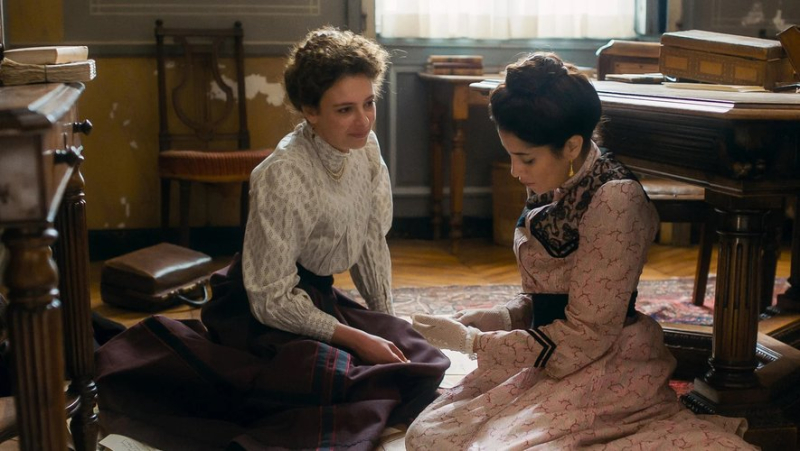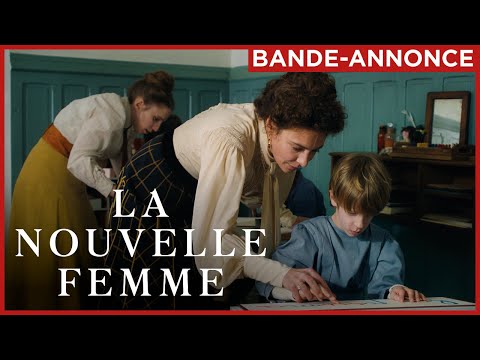“The New Woman” in theaters on March 13: the moving beginnings of the Montessori method in 1900

Jasmine Trinca et Leïla Bekhti, merveilleuses en femmes puissantes et néanmoins fragiles. GEKO FILMS TEMPESTA
Discovered during the last Cinemed, in Montpellier, "La nouvelle femme" by Léa Todoro in theaters this Wednesday, March 13, is a very beautiful film which evokes the beginnings of the alternative Montessori education method between France and Italy at the beginning of the 20th century.
This is not a biopic on Maria Montessori, much less an advertisement for the alternative education method to which she gave her name. This is The New Woman, a beautiful film which features one before it develops the other, at a pivotal moment in its existence but also in the time in which it distinguished itself.< /p>
Less generic than one might think, the title of the film by Léa Todorov (daughter of Nancy Huston and Tzzvetan Todorov) also refers to the historical designation of educated, independent and feminist women from the turn of the 20th century.
The intersecting journey of two women
The new woman is Maria Montessori (Jasmine Trinca) but also Lili d’Alengy (Leïla Bekhti). A famous demi-mondaine in Paris in 1900, the latter fears seeing her career and her freedom threatened by the unexpected return into her life of her daughter Tina (Rafaelle Sonneville-Caby), born with a handicap. So, she leaves shame and the city of light to find refuge and discretion in Rome. There, she meets Maria Montessori, a doctor who is developing a revolutionary learning method for neuro-atypical children, who are then called “deficient”.< /p>

Besides the fact that she puts her love story in the background for the needs of the compelling cause of the children she defends, she also hides a secret which tears from the inside: she is the mother of a child born out of wedlock with stunted growth, whose care she entrusted to a family in the countryside.
The real scientist, the imagined casserole
Very different prototypes of feminine freedom and power, the scientist and the casserole will soon support each other to win their place in this era dominated by men and to write history, great as the intimate, in all cases the fundamental.
But the same goes for the feminist discourse as for the historical reconstruction in The new woman: she is very neat without being overwhelming and he is very contemporary without seeming flat. Léa Todorov, who knows the dismay of discovering herself the mother of a different baby, pays the greatest attention to her story, her heroines, certainly powerful but complex and sensitive, and the host of children who only ask ;rsquo;to flourish…
It highlights patience, attention, openness, at the heart of an experimental pedagogy without obscuring doubt, failure, sorrow. Without any of the violence of an era towards both disability and women. It’s often overwhelming, sometimes heartbreaking, always exciting. And all it takes is a sublime sequence of children's dance for everything to become clearer, and beyond the speech and the method, we cherish the gesture. A gesture of love.
I subscribe to read more




